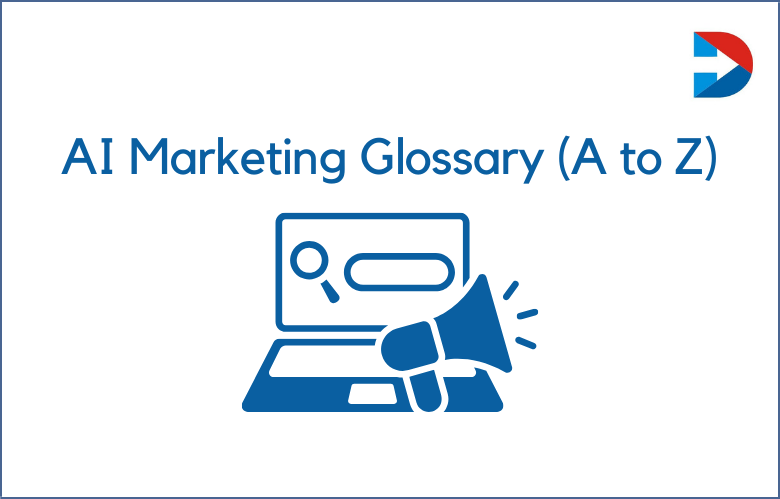
In today’s competitive job market, a robust recruiting process won’t cut it. Employers must build a strong employer branding strategy that helps them attract and retain top talent.
So, what exactly is employer branding? Simply put, it’s the perception that potential and current employees have of an organization as a workplace.
Having a positive employer brand is crucial in attracting and retaining quality talent. But how can an organization go about building one? Here’s a comprehensive guide to building a robust employer branding strategy.
Understanding Employer Branding
Employer branding refers to how an organization creates a unique identity and image as an employer.
This process involves implementing employee engagement, recruitment marketing, and talent management strategies to ensure the brand is attractive to potential candidates and employees.
In today’s highly competitive job market, having a strong employer brand can be a significant differentiator between companies that can both attract and retain top talent.
What is Employer Branding?
Employer branding refers to creating and maintaining a positive perception of an organization as a great workplace. It involves developing and promoting a company’s reputation to attract and retain top talent.
In today’s highly competitive job market, a strong employer brand is essential for organizations to attract and retain high-quality employees.
Critical components of a strong employer brand?
The critical components of a strong employer brand include the following:
A clear purpose and mission
Successful companies have a purpose that is greater than just making money. By clearly communicating their mission and values, employers can attract candidates who share their beliefs and want to be part of something bigger than themselves.
Positive employee experiences
Employees are a company’s greatest asset, and creating positive experiences for them is critical. This could include employee recognition programs, career development opportunities, or a supportive company culture that values work-life balance.
Competitive compensation and benefits
In addition to a positive work environment, employees want to be compensated fairly. Competitive salaries and benefits packages can help attract and retain top talent.
Authentic messaging and branding
Companies must be authentic in their messaging and branding to build trust with candidates and employees. This means being transparent about the good and the bad and living up to promises made to employees.
Diversity and inclusivity
Today’s workforce is diverse, and companies prioritizing diversity and inclusivity can benefit from a broader range of experiences and ideas.
By recruiting and retaining a diverse workforce, companies can create a more inclusive culture and gain a competitive advantage.
Benefits of a Strong Employer Brand?
Increased Employee Engagement
A strong employer brand can help to increase employee engagement. Employee engagement is the level of enthusiasm and commitment that employees have towards their jobs and their company.
When employees are engaged, they are more likely to be productive and stay with the company for a more extended period.
Improved Recruitment Efforts
A strong employer brand can also improve recruitment efforts. Companies with a strong employer brand are more likely to attract high-quality candidates, as potential employees are drawn to companies with good reputations.
A strong employer brand can help reduce recruiting costs, as hiring employees already familiar with the company is typically cheaper.
Enhanced Customer Satisfaction
A strong employer brand can also lead to enhanced customer satisfaction. This is because engaged employees are more likely to provide excellent customer service.
Customers who know that a company treats its employees well are more likely to have a favorable opinion of the company and to be loyal customers.
Improved Employee Retention
A strong employer brand can also help to improve employee retention. Employees who are happy with their jobs and feel part of a good company are less likely to look for new opportunities elsewhere.
This can save the company money in the long run, as hiring new employees is typically more expensive than retaining existing ones.
Greater Productivity
A strong employer brand can also lead to greater productivity among employees.
This is because engaged employees tend to be more motivated and work harder than those who are not involved.
Employees who feel part of a good company may be less likely to take time off or call in sick, increasing productivity.
Examples of companies with Strong Employer Brands?
For a good reason: Google is one of the most popular employers in the world. The company offers its employees several perks, including free food, on-site childcare, and unlimited vacation days. Google also offers its employees several opportunities for professional development and growth.
Amazon
Amazon is another company that has built a strong employer brand. The company offers its employees several benefits, including competitive salaries, stock options, and health insurance. Amazon also allows employees to work from home or flex their hours to accommodate their schedules.
Apple
Apple is another company with a strong employer brand. The company offers its employees several benefits, including competitive salaries, stock options, and health insurance. Apple also allows its employees to work on cutting-edge products and technologies.
Facebook is another company with a strong employer brand. The company offers its employees several benefits, including competitive salaries, stock options, and health insurance.
Facebook also allows its employees to work on cutting-edge products and technologies.
Microsoft
Microsoft is another company with a strong employer brand. The company offers its employees several benefits, including competitive salaries, stock options, and health insurance.
Microsoft also allows its employees to work on cutting-edge products and technologies.
What is the difference between an Employer Brand and a Company Brand?
An employer and a company brand are two distinct concepts, although they may overlap in many ways.
While a company brand represents the overall reputation and identity of the company in the market, an employer brand refers to the perception and importance of the organization as an employer.
In simpler terms, a company brand is what a company stands for in the eyes of its customers, while an employer brand is how the company is perceived by its employees or potential future employees.
A company brand encompasses the company’s products, services, values, and mission, while an employer brand encompasses the company’s culture, work environment, employee benefits, and recruitment practices.
How can a Company measure the strength of its Employer Brand?
A strong employer brand is vital for a company’s reputation and should be measured regularly to ensure effectiveness.
The first step in measuring employer brand strength is to define key performance indicators (KPIs) that align with the organization’s objectives. These quantitative and qualitative KPIs should reflect the company’s values, mission, and vision.
Can a Strong Employer Brand Improve Employee Retention Rates?
A strong employer brand can significantly improve employee retention rates. According to a recent survey by LinkedIn, 75% of job seekers research a company’s employer brand before considering applying for a job.
This indicates that a company’s reputation as an employer matters to candidates and can influence their decision to join or stay with the organization.
Creating an Employer Branding Strategy
Creating a comprehensive employer branding strategy can be a daunting task. It requires a thorough understanding of the organization’s culture and the job market in which it operates.
Investing time and resources into crafting a solid employer brand that resonates with potential candidates is essential to attracting and retaining top talent.
How can a Company ensure that its Employer Brand is authentic and transparent?
Here are some ways that a company can ensure its employer brand stays authentic and transparent:
Be honest and upfront about the good and the bad
Don’t hide your company’s flaws or weaknesses, but don’t exaggerate or overpromise. Be clear about what can realistically be expected from working at your company.
Get employee feedback
Ask employees to give honest feedback about their experiences working at the company and use that feedback to make improvements or adjust the employer brand accordingly. This will also show job seekers that the company values the opinions of its employees.
Keep the message consistent across all channels.
Ensure the employer brand is consistent across all company channels, including social media, job postings, and your website. This will help to build trust with job seekers and show that the company is authentic and transparent.
Let your current employees speak.
Encourage current employees to share their experiences working at the company, whether through social media or other channels. This will give job seekers a more authentic view of what it’s like to work at your company.
Measure the success of the employer brand.
Regularly track the success of your employer brand using metrics such as applicant conversion rate, employee retention rate, and employee satisfaction surveys.
This will help you to identify areas where the employer brand could be improved or adjusted.
How much should a company invest in Employer Branding Efforts?
Investing in an effective employer branding strategy has become critical for businesses to attract and retain top talent.
A company’s employer brand is its reputation as an employer, encompassing its culture, values, and employee experience. Therefore, determining the appropriate investment in employer branding efforts is essential.
Can a Company’s Employer Brand change over time?
Employer brand is the perception and reputation of a company as an employer by its employees, job candidates, and other stakeholders.
It encompasses various aspects of the work experience, including the company culture, values, compensation and benefits, leadership, and career development opportunities.
The employer brand plays a crucial role in attracting and retaining top talent, as well as enhancing the overall image and competitiveness of the company in the market.
Building an Engaging Candidate Experience
Building an engaging candidate experience is crucial in today’s highly competitive job market.
Providing candidates with a positive and personalized experience can help attract top talent, boost employer brand reputation, and improve retention rates.
To create an engaging candidate experience, companies must focus on several key factors.
Firstly, having a user-friendly and visually appealing career website that showcases company culture, values, and available job opportunities is essential.
This website should also provide an easy application process that doesn’t overwhelm candidates with unnecessary questions or requirements.
Importance of Candidate Experience in Employer Branding?
In today’s competitive job market, having a strong employer brand has become more critical than ever.
A company’s employer brand is its image or reputation as an employer, and it can influence how candidates perceive the company and its organizational culture.
One main factor contributing to building a positive employer brand is the candidate experience.
A candidate’s experience during the hiring process can shape their opinion about the company and its leadership and values.
A positive candidate experience can help attract top talent, while a negative one can drive candidates away and even harm the company’s reputation.
Elements of a Positive Candidate Experience?
Creating a positive candidate experience is essential for any organization, especially in today’s tight job market.
A positive candidate experience can significantly impact an organization’s internal and external reputation. It can result in higher, better-qualified candidate pools, increased productivity and brand loyalty, and decreased turnover.
The elements of a positive candidate experience are multifaceted. First and foremost, prompt and transparent communication is crucial.
Keeping candidates informed about the hiring process, being responsive to their questions and concerns, and providing prompt feedback can enhance their experience. A well-thought-out and structured hiring process is also essential.
Strategies for improving the Candidate Experience?
To enhance the candidate experience, companies may consider implementing various strategies to improve the recruitment process.
One critical approach may be establishing more transparent and open communication channels between recruiters and candidates, ensuring that the latter are well-informed throughout the various stages of the hiring process.
This may include providing job seekers with detailed information about the job opening, the company culture, and the interview process and responding promptly to queries and feedback.
Examples of Companies with Successful Candidate Experiences?
Google is widely known for its excellent candidate experience. The company has a dedicated team of recruiters who work to ensure that candidates have a positive experience throughout the hiring process.
Google also offers a variety of resources to help candidates prepare for their interviews, including interview tips and sample interview questions.
Amazon
Amazon is another company with a reputation for having an excellent candidate experience. The company has a dedicated team of recruiters who work to ensure that candidates have a positive experience throughout the hiring process.
Amazon also offers a variety of resources to help candidates prepare for their interviews, including interview tips and sample interview questions.
Facebook is yet another company with excellent candidate experience. The company has a dedicated team of recruiters who work hard to ensure candidates have a positive experience from start to finish.
Facebook also provides candidates with plenty of resources to help them prepare for their interviews, such as interview tips and sample interview questions.
Apple
Like the other companies on this list, Apple also has excellent candidate experience. The company has a team of dedicated recruiters who work to ensure that candidates have a positive experience throughout the hiring process.
Apple also offers plenty of resources to help candidates prepare for their interviews, such as interview tips and sample interview questions.
Microsoft
Microsoft is another company with excellent candidate experience. The company has a team of dedicated recruiters who work hard to ensure candidates have a positive experience from start to finish.
Microsoft also provides candidates with plenty of resources to help them prepare for their interviews, such as interview tips and sample interview questions.
How can a Company measure the effectiveness of its Candidate Experience?
In today’s competitive job market, it is crucial for companies to not only attract top talent but also provide a positive candidate experience throughout the hiring process.
This experience includes everything from job postings and the application process to communicating with recruiters and the interview process.
A negative candidate experience can result in losing out on top talent and a damaged reputation and brand image.
What are some common mistakes companies make when creating a candidate experience?
Despite a growing emphasis on a positive candidate experience, many companies still fall short in this area, often making common mistakes that can ultimately cost them top talent. Some of the most prevalent errors include:
Lack of Communication
Failure to communicate with candidates throughout the hiring process is a significant source of frustration for job seekers.
Providing regular updates on the status of an application or any changes to the recruitment process can go a long way in building a positive candidate experience.
Lengthy Application Processes
Cumbersome online applications can deter even the most qualified candidates from applying.
Simplifying the application process, including reducing the required fields and allowing applicants to upload their resumes instead of requiring manual data entry, can help attract and retain top talent.
Poor Interviewing Practices
Interviewing is a crucial step in the hiring process, but many companies need to approach it more carefully, which can derail the candidate experience.
Companies must ensure that interviewers are adequately trained, prepared with specific questions, and provide constructive feedback to candidates.
Inflexibility
A lack of flexibility in scheduling interviews, inflexible work hours, and a lack of consideration for candidate needs can make the hiring process more challenging than it needs to be.
Companies need to be adaptive and responsive to candidates’ needs to enhance the candidate experience and avoid potentially losing out on top talent with other options.
Failure to Personalize
Candidates want to feel valued and appreciated, and many companies make the mistake of treating them as a number rather than unique individuals.
Personalizing communication, acknowledging their qualifications, and addressing them by name create an experience that fosters a sense of respect and builds trust with the candidate.
How can a Company ensure its Candidate Experience is consistent with its Employer Brand?
A company can take several measures to ensure that its candidate experience is consistent with its employer brand, which can significantly contribute to attracting the right talent and retaining high-performing employees.
Firstly, it is essential to have a transparent and authentic employer brand that resonates with the organization’s mission, values, and culture. This helps create a compelling employer value proposition that motivates candidates to apply for job openings.
Leveraging Social Media for Employer Branding
In today’s technology-driven world, social media has become an indispensable tool for companies to attract potential talent and create a positive employer brand.
With millions of users logging onto various social media platforms daily, businesses must incorporate social media into their recruitment strategy to showcase their company culture, values, and unique offerings.
What is the role of social media in employer branding?
Social media offers a unique platform for companies to interact with potential candidates and build relationships before they even apply for a job.
By engaging with candidates through social media, employers can answer their questions, address their concerns, and provide valuable insights into what it’s like to work at their organization.
This builds trust and credibility, making candidates more likely to consider them an employer of choice.
Best practices for using Social Media for Employer Branding?
Define your brand identity.
Before leveraging social media for employer branding, it is essential to define your brand identity.
This includes your company culture, core values, and the work environment you offer. Once you clearly understand your brand identity, you can use social media to communicate and showcase it effectively.
Use multiple Social Media Platforms.
Different social media platforms attract diverse audiences, and it is essential to use various platforms to reach as many potential candidates as possible.
LinkedIn is the obvious choice for professional networking, but you should consider platforms like Facebook, Instagram, and Twitter to reach a wider audience.
Create Engaging Content
Your social media content must be engaging and informative to attract potential candidates. Post regular updates about company events, share employee stories, and highlight your company culture.
This will help candidates better understand what it’s like to work at your company and can help build a sense of community.
Utilize Employee Advocacy
Your current employees are your best advocates for your company culture and values. Encourage your employees to share your social media posts and their experiences working at your company.
This can help to amplify your brand message and build a stronger employer brand.
Monitor Your Social Media Presence
Social media can be a double-edged sword; negative comments or reviews can quickly damage your employer’s brand. Monitor your social media presence regularly and respond promptly to negative feedback or comments.
This will show potential candidates that you value their feedback and are committed to creating a positive work environment.
Examples of Companies with Successful Social Media Employer Branding?
Social media has become an essential aspect of recruitment and employer branding.
It has allowed companies to establish their presence and showcase their culture, values, and opportunities to a broader audience. Here are some examples of companies successfully leveraging social media for employer branding.
HubSpot
HubSpot, a marketing and sales software company, is known for its innovative and fun company culture. It has effectively communicated this culture through its social media presence.
HubSpot’s social media pages are filled with images and videos of employee events, office decor, and company benefits. This helps potential employees gain insight into HubSpot’s work environment and what it would be like to be a part of the team.
Hootsuite
Hootsuite, a social media management platform, uses social media to show its company culture and values. It often highlights its employees’ achievements, celebrates diversity and inclusion, and showcases its philanthropic efforts.
Hootsuite also involves its employees in social media – inviting them to share their experiences, insights, and ideas. This helps to build a sense of community and belonging.
Cisco
Cisco, a multinational technology company, is known for its focus on innovation and technology.
It utilizes social media to showcase its cutting-edge technology and commitment to sustainability and social responsibility. Cisco also regularly shares employee success stories, highlighting the company’s dedication to employee development and growth.
Amazon
Amazon, an e-commerce giant, uses its social media presence to share its innovative and exciting projects, including its drone delivery system and new grocery store initiatives.
The company also regularly showcases its employee stories, as well as its workplace perks and benefits. Amazon’s social media strategy emphasizes inclusion, diversity, and work-life balance.
Which Social Media Platforms are best for Employer Branding?
Recently, social media has become a crucial tool for businesses to enhance their employer branding efforts.
By showcasing their company’s culture, values, and work environment, firms can attract top talent to their organization.
However, choosing the right social media platforms to focus on can be challenging, considering the vast array of options available.
LinkedIn, the professional networking platform, has remained one of the most effective social media platforms for employer branding.
With over 740 million members, including professionals and companies across various industries, LinkedIn offers a vast pool of potential candidates.
Moreover, LinkedIn’s features, such as company pages, job postings, and employee testimonials, allow organizations to showcase their culture, recruitment process, and values to a broader audience.
How can a Company handle Negative Comments on Social Media related to Employer Branding?
One approach that companies can take is to monitor social media platforms regularly. This can help them quickly identify negative comments or complaints about their employer’s branding.
Employing efficient tools and technologies to monitor social media channels can help keep a constant watch on online conversations.
Another effective way to handle negative comments is to respond professionally and proactively. Companies should take care that their responses are transparent and sincere.
They could acknowledge the negative feedback and provide a solution or explanation calmly and respectfully.
This approach demonstrates that the company values its employees or potential candidates and is willing to take the necessary steps to improve.
Can Social Media Employer Branding help attract passive job seekers?
Social media employer branding has become an increasingly important tool for companies to attract and retain top talent.
With most job candidates now using social media as part of their job search and research process, it’s no surprise that employers are turning to these platforms to showcase their brand and culture.
One potential benefit of social media employer branding is its ability to attract passive job seekers.
These individuals are not actively looking for a new job but could be open to new opportunities if presented with the right one. According to a survey by LinkedIn, 70% of the global workforce falls into this category.
Conclusion
Building and maintaining a strong employer branding strategy requires a mix of creativity, dedication, and strategic thinking.
By understanding your company culture, leveraging social media, refining your candidate experience, offering employee development opportunities, and measuring your results, you can positively perceive your company as a desirable workplace.
Remember that an effective employer branding strategy has a ripple effect beyond just attracting and retaining top talent. It also helps to establish and maintain a good reputation in the marketplace, which ultimately helps to achieve business success.



